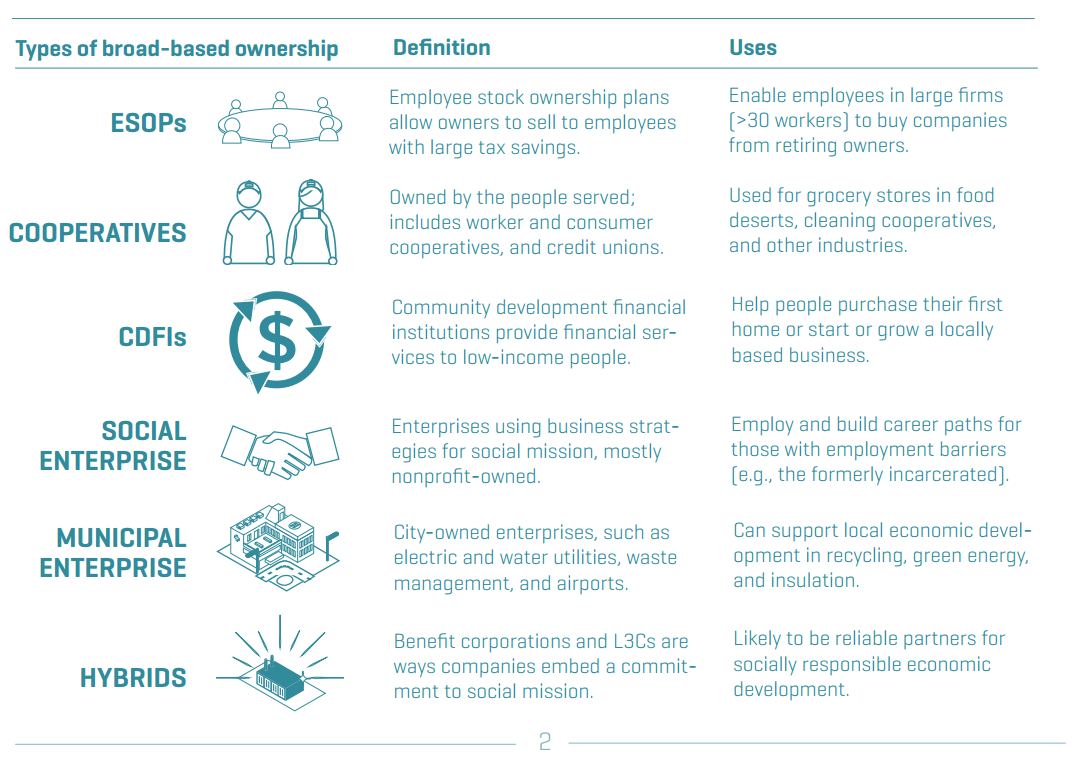Field Notes: Innovations in Community Development

How can city and community leaders encourage job growth and build wealth within their communities? In part by encouraging the use of business models that promote these benefits, according to the Democracy Collaborative. "Broad-Based Ownership Models As Tools for Job Creation and Community Development,” by Marjorie Kelly, Steve Dubb, and Violeta Duncan, is a guide covering best practices in broad-based ownership models and how they can help low- and moderate-income communities build wealth.
The first of three-part series on Building the Inclusive Economy, it focuses on six models of ownership that can be applied to private companies, banking institutions, or even public utilities:
The report indicates a growing number of enterprises falling into these categories and documents the favorable outcomes for employees and the communities they work in, while providing advice and action steps for community leaders:
ESOPs: employees of ESOPs tend to make 5 to 12 percent more in wages than traditionally owned companies.
Cooperatives: Often provide quality goods and services to areas neglected by traditional businesses and retain the profits within the community.
CDFIs: Offer financing to distressed communities and populations that would otherwise not have access to capital, they have also shown to be resilient in economic downturns while offering steady but modest returns to investors.
Social Enterprises: Provide opportunities for employment and training for populations facing a significant barrier to traditional employment.
Municipal Ownership: Residential users paid 13 percent less for electricity than users of investor-owned utilities with the added benefit of providing revenue for city governments.
Emerging Hybrids: These hybrids integrate social responsibility into their core business, creating quality jobs and a strong connection to their communities.

Click here for more quick reads featuring interesting articles on philanthropy and impact investing.
Comments are closed here.